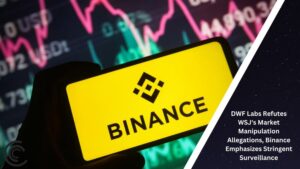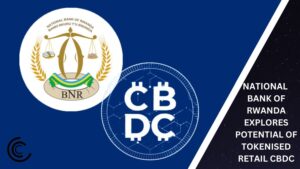Key takeaways:
- The Financial Supervisory Commission (FSC) and Money Laundering Control Act have apparently received an application from Binance.
- Binance must register a business and put together a local team in Taiwan.
The Financial Supervisory Commission (FSC) and Money Laundering Control Act have apparently received an application from prominent cryptocurrency exchange Binance to register in Taiwan.
According to a report from local media, the FSC allegedly notified several domestic cryptocurrency service providers that Binance is requesting Anti-Money Laundering (AML) compliance.
The co-founder of the Taiwanese cryptocurrency exchange BitShine, Chen Peiyun, was listed in the report as the information’s source. He said that Binance was one of the exchanges the FSC was considering for entry into the Taiwanese cryptocurrency market.
Despite the fact that Taiwan’s cryptocurrency market is mostly uncontrolled, the FSC issued AML regulations in July 2021 and required all cryptocurrency exchanges doing business or providing services in the nation to abide by them.
Through a local company called Binance International Limited Taiwan Branch (Seychelles), Binance does operations in Taiwan. According to registration data, Binance’s local entity was set up on May 12, 2023.
Binance must register a business and put together a local team in Taiwan. In addition to being registered in the nation, the cryptocurrency exchange has worked with the local government to combat cybercrime.
The disclosure that Binance is joining the Taiwanese cryptocurrency market comes as the exchange is under regulatory review in the United States and Europe. The corporation is involved in numerous litigation in the United States, and due to regulatory issues, it withdrew from several European judicial proceedings.
In March, the island nation’s major cryptocurrency regulator changed to the FSC. At the time of the announcement, the head of the regulatory organization stated that major laws and policies would be developed, including practices for investor protection and segregating consumer assets from corporate cash.
Taiwan has made it clear that its cryptocurrency regulations will operate independently of those in mainland China, considering that Beijing has outlawed any cryptocurrency-related activity since 2021.










